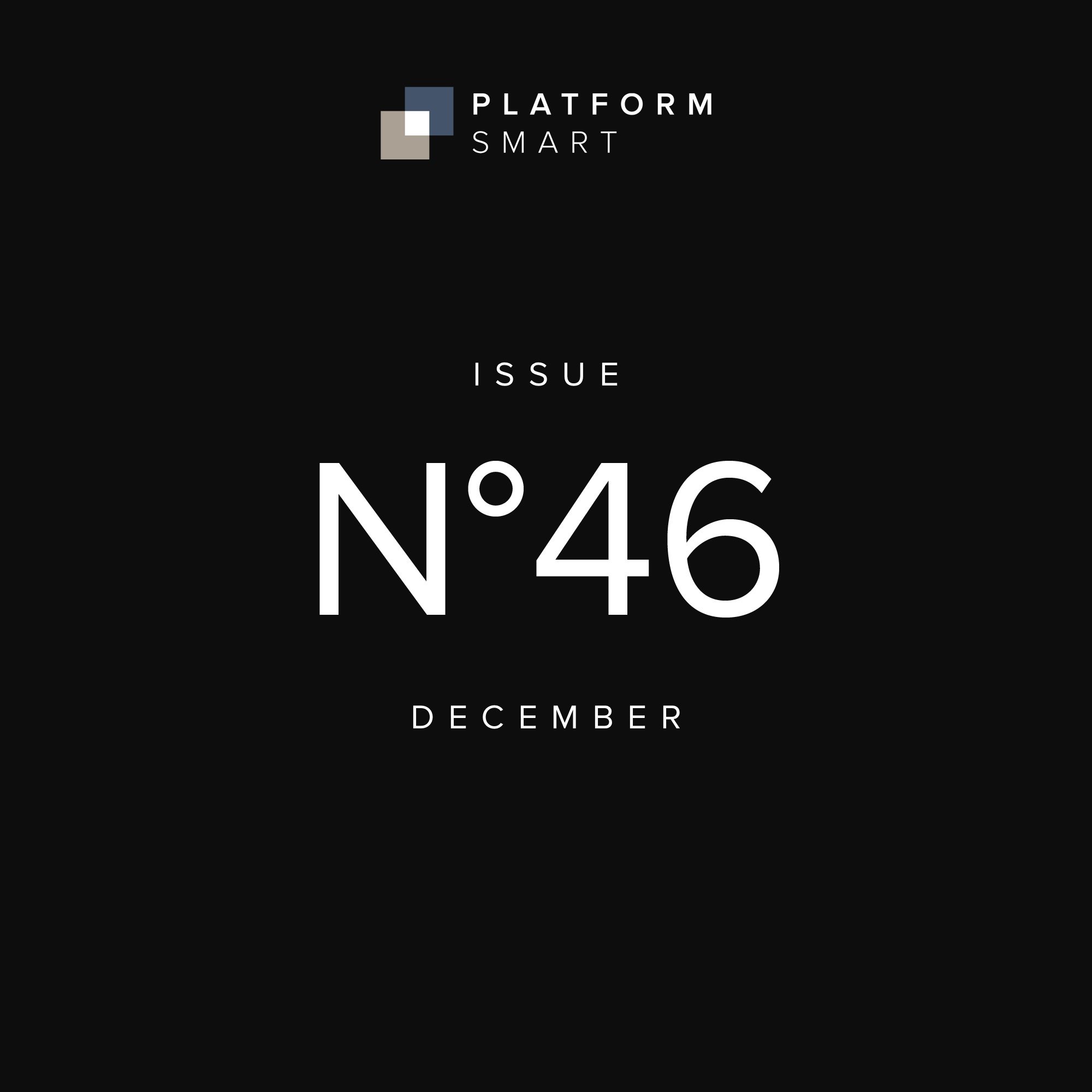Leading Change with Adrian Baker
We have known Adrian Baker for over 15 years, he is one of the most experienced Programme Managers we have had the privilege of working with.
Adrian is an independent third-party associate engaged by Platform Smart on specific client engagements, over the past 9 years he’s been engaged across various client accounts on multiple engagements overseeing and managing complex and challenging programmes.
This interview gives an insight into Adrian’s management style as well as his views on how to be successful in overseeing and managing change.
What inspired you to pursue a career in project management/tech?
I’ve always been interested in Technology; but having studied Electrical and Electronic Engineering at University and worked in several placements with Research and Development Engineering teams specialising in Microwave and advanced Digital technologies, I realised that I preferred something perhaps one step back. (which – techie joke – is doubly sensible when dealing with microwave sources!). The sweet spot for me turned out to be where technology and business meet, giving me the variety and interest from both sides of the coin. After university, I joined my sponsoring company as a Technical Training Manager and progressed from there via recruitment sales to my first “real” job in IT (I placed myself!). From there it was a short step into consulting where I realised that the roles that really grabbed my attention were Technical Project based. The variety, the constant challenge, and the diverse mix of Technology and Business seemed to suit my personality and keep me interested!
Can you share a project management success story that you’re particularly proud of?
Not the biggest but one of the most interesting and rewarding projects was being engaged to support the formation of Axelos, the professional body responsible for Prince2, ITIL, MSP and a myriad of other professional certifications. The joint venture between OGC and Capita was set up in 2013. I was engaged as lead IT Project Consultant to recover something of a false start and to manage the development, commissioning, and set-up of all IT systems needed to make the new business fully operational for launch the following year. The start-up company was only a handful of people which drove much broader demands from everyone, including third parties such as myself. My scope touched every facet of the business; from getting building infrastructure installed, to the bulk generation and issuance of license agreements, the selection and procurement of a content management platform and the development of a website and CPD portal. It was fascinating, it was broad, and it was easy to see the difference we were making. Ultimately, it still is very satisfying as a project manager to be able to say that I contributed to the launch of the professional body responsible for project management qualifications including Prince2, Prince2 Agile and MSP.
How do you handle unexpected challenges or setbacks in a project?
Always expect the unexpected! There are always going to be issues and challenges that will blindside you in any project. It’s often easier said than done but I think the key is to keep your head. Leverage the skills and experience of those around you to try to understand the problem. Once you know what’s happened and why, you stand a fighting chance of dealing with it. Throughout the whole process, transparency with stakeholders and the team is key. It is essential that you keep everyone on the same page and appropriately “looped in” – it can sometimes be uncomfortable, but that transparency builds trust, confidence, and your ability to deal with more “unexpected” moving forward.
What project management tools or methodologies do you find most effective, and why?
I don’t believe in one size fits all and think there’s often real danger in being distracted into focussing more on compliance against a methodology than on the delivery of the objective itself. Sure, compliance with a delivery standard is usually required but outside of that, just keep it simple. The Project Manager’s role is to drive the project team towards an objective. I find a no-frills approach works well for me: keep a firm handle on the objective, be open and honest in communications with the team and stakeholders and drive collaboration whenever you can. Drive rigour to ensure scope is controlled, risks are reviewed and progress against plan and budget are managed. Finally, and most importantly, be accountable. If you do all of that, it will go a long way to getting any project to where it needs to be.
As far as tools and techniques are concerned, I jokingly imagine that I have a “mental toolbox” into which I’ve thrown every single tool, technique, and methodology that I’ve ever known. The “old favourites” have been worked hard whilst others may still have their wrapping on! But, when a situation arises, I’m happy to rummage around and pull out whatever seems to be the best fit for the task at hand. That said, I’ve found that one of the most powerful techniques is not to lead with the toolbox… but rather to surround yourself with capable people and to not to be afraid to ask for help. advice and suggestions from the team around you. Getting people focussed on the target, engaged, and feeling valued beats every single tool, technique, and methodology I’ve ever used to date.
How do you balance the competing demands of time, scope, and resources in a project?
I’m not sure there’s any “secret sauce” method of doing this other than to always be thinking of consequences. Baseline the status quo, manage change, and keep an open channel with key project stakeholders. Scope, time, and budget / resource are all interlinked; change one, and one or both others will move. By reviewing changes and presenting impact assessments before committing to any change, you will allow your stakeholders / sponsor / team to make informed decisions. Where changes are within project management’s discretion, obviously this can be done within the team, but it’s always good to be transparent and keep stakeholders informed even if you’re not asking for approval – as several small changes can (and often do) sum up to become a larger change which might need stakeholder approval.
What strategies do you use to foster effective communication within a project team?
Nothing special; just open, honest, and frequent communication. Be transparent about the good things and the bad. Make people feel their input is valued; Share issues and concerns and don’t be afraid to ask for help and suggestions. Be supportive: say “thank you” and publicly recognise work done well and don’t be afraid to share (privately and professionally) disappointment where work is below normal par. The latter includes yourself, so if you’re wrong, be the first to admit it.
A project manager’s role is to focus the efforts and expertise of others to deliver against the overall objective; it’s essential that the team are aware of and (even if only at a top level) understand their part of the delivery, the constraints, and the issues at hand. Project delivery is almost always more than one person, and if the team know they have a voice and feel appreciated and invested, they will work harder and perform better in supporting the overall delivery.
How do you ensure that your team stays motivated and engaged throughout the project lifestyle?
Be accountable, have their backs then set the direction and clear the path. It’s important that every member of the team knows that they’re all in it together. Irrespective of individual roles and contributions, a project team succeeds or fails as one. Everyone should know the top-level objective and what their part of that big picture is. Everyone should feel empowered enough to call out issues, opportunities, or concerns. The team should be encouraged to support one another, and to be open in asking for help. Above all, the team should avoid a blame culture as that quickly erodes the whole team from the inside. Try to get things right but if mistakes are made, acknowledge, learn, adapt, and move on. “All for one, and one for all” as the saying goes.
Can you share an example of a project that didn’t go as planned and what you learned from it?
The project was to lead software development and application deployment for an unnamed law firm. It was overrunning before I inherited it, the requirements had been lost to the mists of time and what remained was flimsy at best. The sole reason for pushing onwards seemed to be for the IT function to save face with the business that they had seen the thing to the end.
I recommended the project be closed (the correct course of action when there’s just no business case left) but the management team were adamant about pushing forward with “delivery”. It was painful, it was ugly, but we got there. The application limped over the line, and I suspect was retired and forgotten not too long after deployment. A painful experience for all concerned.
I learned to always question the business case, the reason for driving forward, and the objective. As a Project Manager, “Why?” is one of the most powerful questions you can ask (closely followed by its siblings: Who, What, Where, When and How).
In your experience, how important is adaptability in project management, and how do you cultivate it within your team?
Essential. Project teams are always under pressure to work faster and leaner to achieve more. If you have “Swiss Army Knife” people in the team – that is people with broad skills who can turn their hands to almost anything – you have a much better chance of dealing with anything the project can (and will) throw at you without the added challenges of finding new resource when the unexpected comes up. In terms of how to cultivate it, adaptability is more a state of mind than it is a skill. Yes, it requires skills but, if people are willing to put the effort in and learn to push themselves outside their comfort zones, the skills and adaptability will come.
What emerging trends or technologies do you believe will have a significant impact on the future of project management?
I think there will always be a place for a project management role – at least in the way that I perform the function, which is more as a “leader” than “manager” – but I suspect we may start to see technology-based automation, ChatGPT and other LLM “Artificial Intelligence” being used to leverage resource capacity, skills, and experience at all levels within the project.
Just because you can, doesn’t mean you should: I think it is essential that significant thought and effort are devoted to address the thorny issues around security and the potential long-term erosion of professional competence, but, with the right balance I can see technology assistance and automations could drive improvements across the entire project team.
Emerging technology could change project management by easing or even completely removing documentation and reporting burdens from project managers. Business cases, initiation documents, scoping, and instruction documents, change controls, closedown reports, risk reviews, and lessons learned could all be candidates for fully or partially automated generation and/or analysis. Similarly, project tracking, reporting, risk management and ongoing viability are all products of the analysis of project artefacts so those too might be another focal point for AI-style automation. More generally, for all project-based resources, an individual’s skills, experience, and level of output can all be augmented by technology and automation to enable smaller project teams with broader multi-skilled members to successfully deliver projects normally requiring greater resources.
Project Delivery Copilot – or Skynet – may not be as far away as we think…
ADRIAN BAKER
IT Programme Manager
LinkedIn











